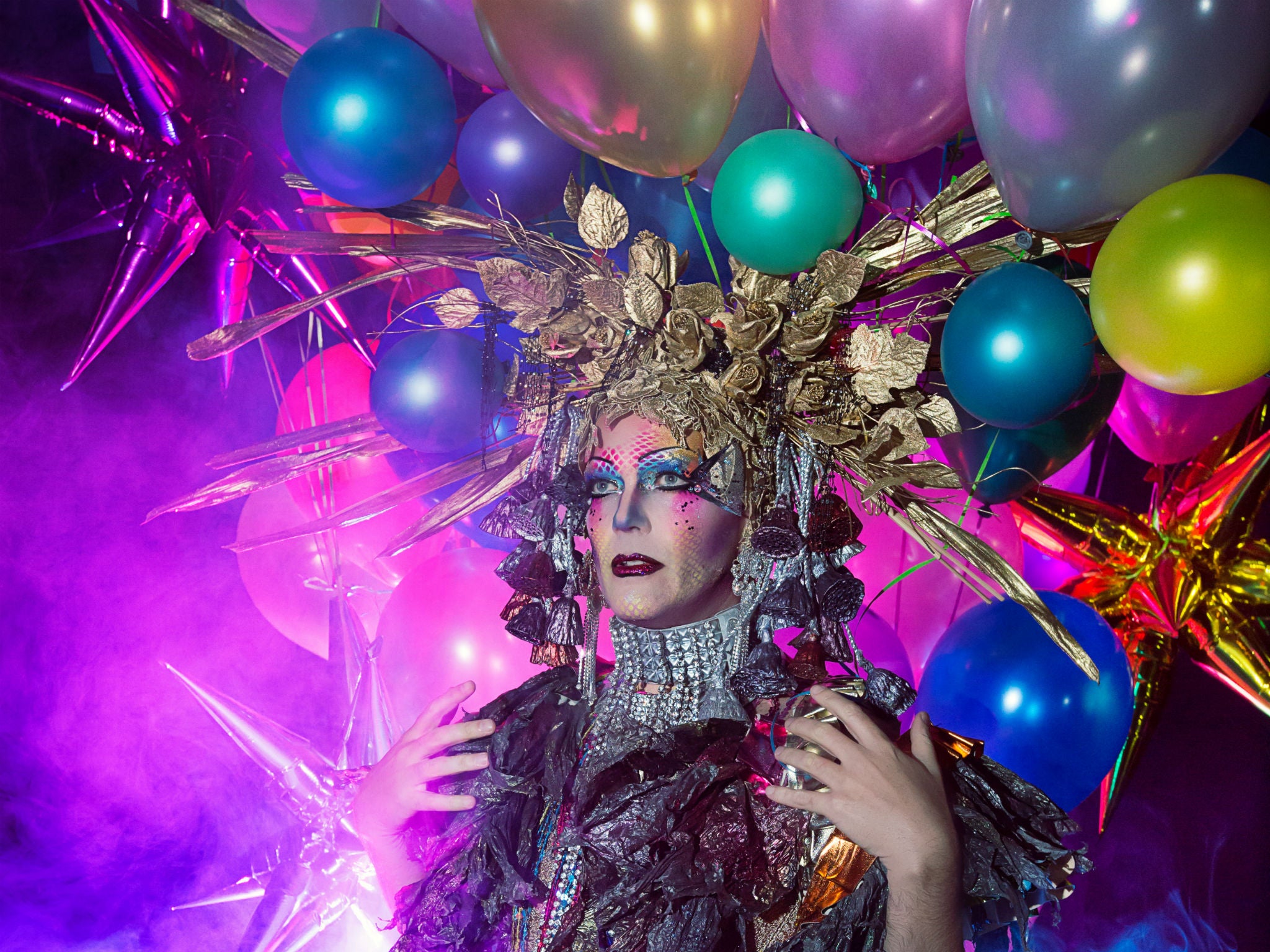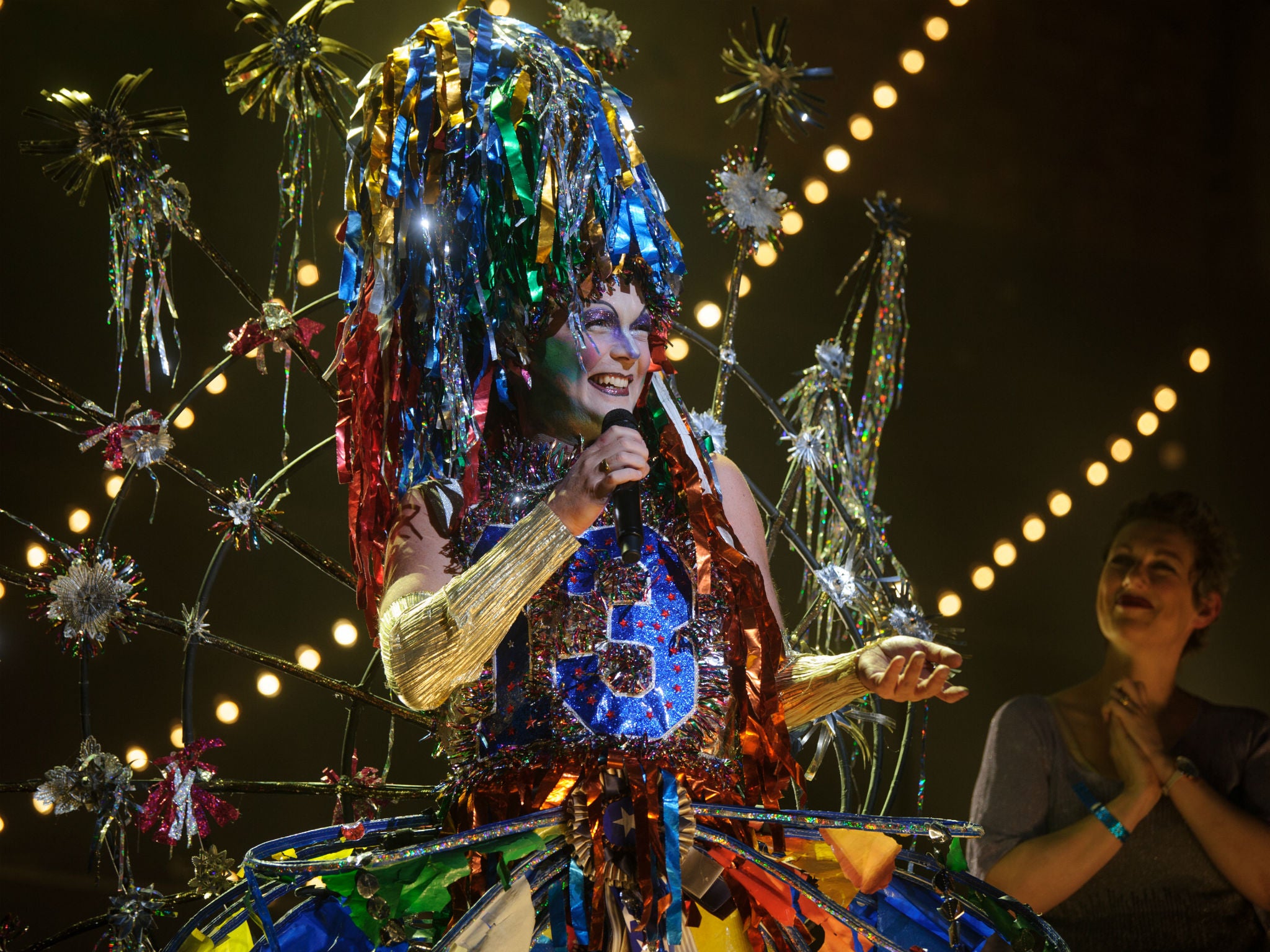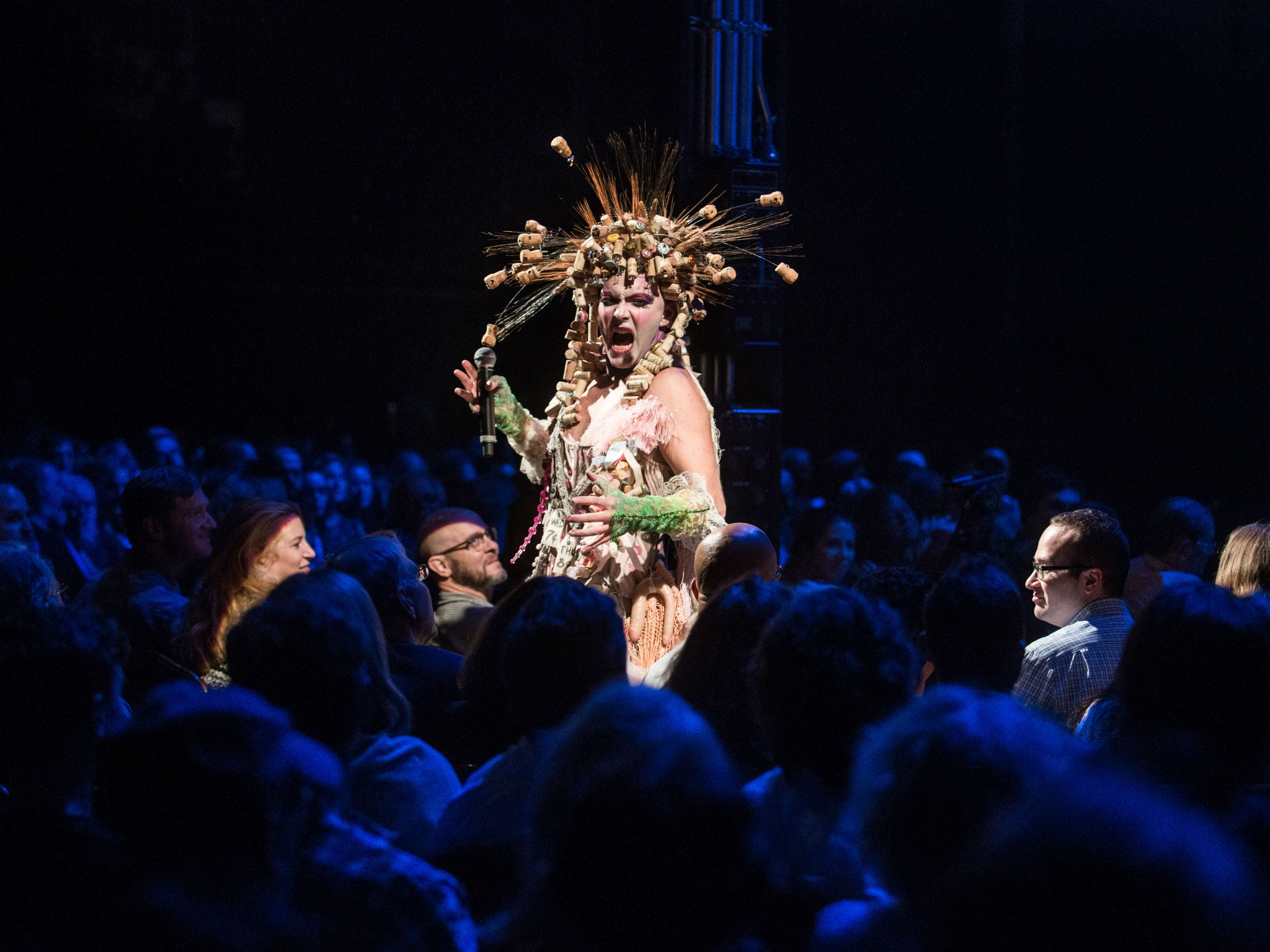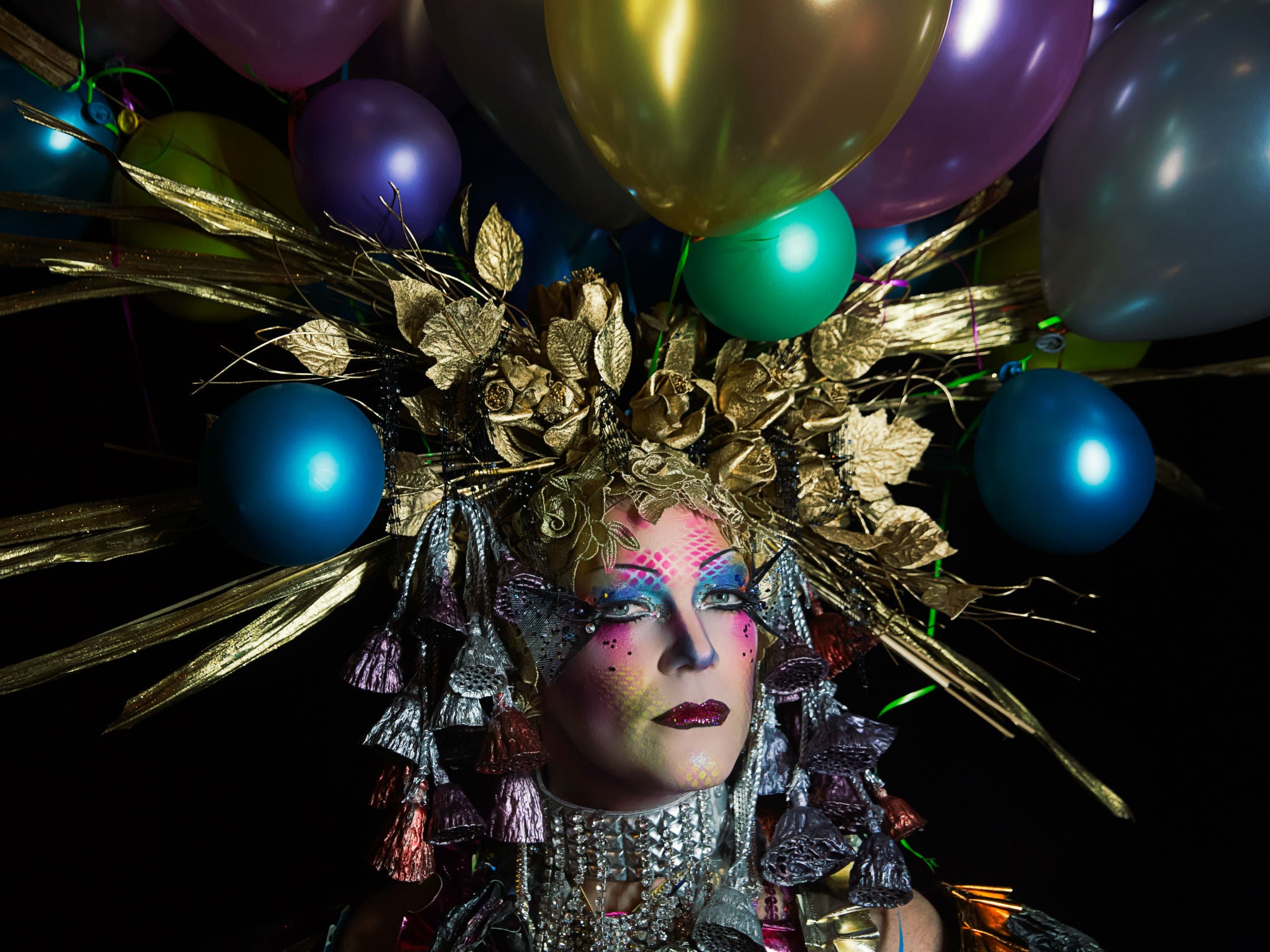Taylor Mac on bringing danger to the stage: 'My shows are the opposite of safe spaces'

Your support helps us to tell the story
From reproductive rights to climate change to Big Tech, The Independent is on the ground when the story is developing. Whether it's investigating the financials of Elon Musk's pro-Trump PAC or producing our latest documentary, 'The A Word', which shines a light on the American women fighting for reproductive rights, we know how important it is to parse out the facts from the messaging.
At such a critical moment in US history, we need reporters on the ground. Your donation allows us to keep sending journalists to speak to both sides of the story.
The Independent is trusted by Americans across the entire political spectrum. And unlike many other quality news outlets, we choose not to lock Americans out of our reporting and analysis with paywalls. We believe quality journalism should be available to everyone, paid for by those who can afford it.
Your support makes all the difference.“Some people say my shows are safe spaces,” says Taylor Mac, “but I’m adamantly opposed to safe spaces. My shows are the opposite of safe spaces. Someone might break your heart during one of my shows, or give you a disease, so there’s nothing remotely safe about them.”
Mac, who arrives at the Barbican on 28 June as part of the London International Festival of Theatre (LIFT) with a three-hour segment from the Pulitzer Prize-nominated A 24-Decade History of Popular Music, is a remarkable talent. One who is at last riding high, but who in the past has struggled to achieve success and recognition.
“If over the years I’ve nurtured the art and tried to keep it centre stage, I can’t honestly say that’s always been down to bravery – it’s also about circumstance. For years I’ve lived from pay check to pay check. I spent seven years when I couldn’t even get an audition, so I guess that saved me from selling out,” says Mac, who is acutely aware that it is not just hard work, but luck, that propels careers.
“I am surrounded by people who have worked a lot longer than me, and just as hard and still not broken through.”

Mac can write plays such as Hir, a Sam Shepard-style family drama with added gender politics – which was acclaimed in New York and got its UK premiere at the Bush last year – but is just at home looming seven-feet-high on stage in A 24-Decade wearing full drag including a wig fashioned from wine corks and barley leaves, and a dress alive with sequined snakes.
Fabulous is a much over-used adjective, but it really does apply to Mac who prefers the gender fluid pronoun Judy on the grounds that “you can’t roll your eyes at Judy without being camp”.
Judy claims that drag is not a costume but “what I look like on the inside”.
While some careers would totter on six-inch stilettos, Mac towers and triumphs in A 24-Decade History, a piece which draws on 246 songs to chart the making of modern America from 1776 to the present day.
The full version takes 24-hours to perform, and has been eight years in the making, attracting a dedicated following with some people trying to see it in as many incarnations as possible.
“Over those eight years people have met at the show and become lovers and broken up. Babies have been born as a result of this show.”
London got a two-hour taster at LIFT in 2016 during an evening at Hackney Empire in which Mac transformed a bunch of strangers into an instant community and made us all glitter a little more brightly, hug each other a little more tightly. It makes me think Mac is not exaggerating about the babies.
A 24-Decade History is a show that draws on the soundtrack of America and different communities, from a Confederate soldier during the civil war, to a gay man living during the Aids crisis in the 1980s, to a person of colour today. But while it celebrates the positive, as it concentrates on a different community over each decade, it is not a utopian exercise.
“Everyone says that community is a good thing,” says Mac. “Sometimes they are and sometimes they aren’t. Some communities are really nasty. I’m interested in exploring the full range of what a community might be.”

London will have to be patient for the 24-hour marathon, which includes events ranging from the American Civil War conducted with ping-pong balls to a staging of Judy Garland’s funeral, but this year we are being treated to The First Act, a three-hour piece played without interval (you are free to come and go as you please) concentrating on three decades from 1776 to 1806.
This is a show in which the now and the then constantly circle and curl around each other. If you think the American songs from that era will be unfamiliar to you, think again: they include “Yankee Doodle”, “Amazing Grace”, “Oh Dear What Can the Matter Be”, and many more.
“Songs are propaganda,” points out Mac. “One of the things the show does is to try to figure out how many of our songs and how much of our history is propaganda that we’ve blindly embraced.”
But the show doesn’t set out to teach people about history. “How could it? I’m not a historian. But it does say that everyone in the room has a lot of history on their backs. I look at the roots of the songs, and where they came from.”

Mac reckons that The First Act, charting the founding of the nation, has a particular resonance at a time when the US is suffering its own crisis of identity and populism is on the rise. Judy doesn’t mince words: “We have a white supremacist in the White House.
“Trump is trying to steal the American story and he’s such an egomaniac, he’s trying to steal the world’s story too. So, of course, I have to incorporate him in the show, but I can’t let him take it over.”
But although the show offers an American soundtrack, Mac is confident that it speaks to whoever is present.
“I always perform to the room. It’s an American show when it’s in the US, and a British show in the UK.” One that may take on extra meaning following the vote for Brexit. “It’s depressing when people choose isolation as their identity.”
One of the great pleasures of watching Mac perform is the way that the performance feels as if it is teetering on a knife edge, as if what is happening on stage might tip into chaos at any moment. That’s rare in a theatre world where so many shows are polished to a shine and are locked down so that nothing surprising can ever happen.
“What I do may look thrown together but there is craft. The craft has been developed through performing the show, not rehearsing it. A lot of it you can’t rehearse because it relies on the audience reaction. You can’t rehearse that until it’s in front of the audience,” Judy says. “Living with that liveness is dangerous and exciting. It can be terrifying, it’s always thrilling – and it’s never safe.”
‘A 24-Decade History of Popular Music: The First Act’ is at the Barbican 28 – 30 June (barbican.org.uk)
Join our commenting forum
Join thought-provoking conversations, follow other Independent readers and see their replies
0Comments